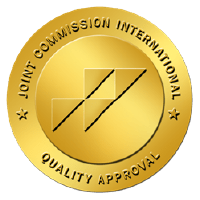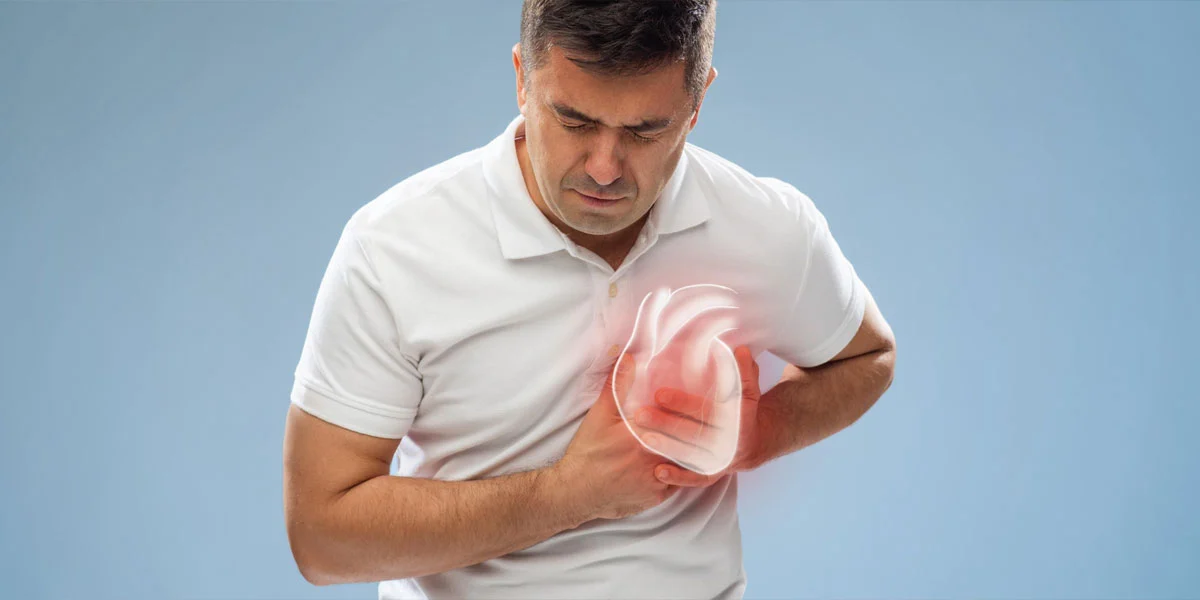If you are one of the millions of people who suffer from hypertension, also known as high blood pressure, you may be wondering what you can do to manage the condition. This article will provide you with all the information you need to know about hypertension: its causes, symptoms, and risk factors. We will also discuss some treatment options that are available to you. So, whether you are just starting to learn about hypertension or you have been living with it for years, this post is for you!
Understanding Hypertension
Hypertension, also known as high blood pressure, is a medical condition in which the blood pressure in the arteries is consistently elevated above normal levels. Blood pressure is the force of blood pushing against the walls of arteries, which transports blood from the heart to the rest of the body.
Blood pressure is measured using two numbers: systolic and diastolic. Systolic blood pressure is the force of blood against the artery walls when the heart beats, while Diastolic blood pressure is the force of blood against the artery walls when the heart rests between beats. A normal blood pressure reading is around 120/80 mmHg (millimeters of mercury), with the systolic pressure being 120 mmHg or less and the diastolic pressure being 80 mmHg or less.
Hypertension is diagnosed when the systolic blood pressure is consistently above 140 mmHg and/or the diastolic blood pressure is consistently above 90 mmHg. Hypertension is a common medical condition affecting millions of people worldwide. It is a major risk factor for cardiovascular disease, stroke, kidney disease, and other health problems.
Primary hypertension, also known as essential hypertension, is the most common form of hypertension, accounting for about 90-95% of cases. It develops gradually over time, and its exact cause is not known. However, several risk factors have been identified, including age, family history, obesity, physical inactivity, smoking, excessive alcohol consumption, high salt intake, and stress.
Secondary hypertension is less common, accounting for about 5-10% of cases. It is caused by an underlying medical condition, such as kidney disease, adrenal gland tumors, obstructive sleep apnea, or certain medications, among others.
Hypertension is often referred to as the “silent killer” because it usually has no symptoms in its early stages, and many people may not be aware they have it until it has caused significant damage to their organs. However, some people may experience symptoms such as headache, dizziness, blurred vision, chest pain, and shortness of breath in severe cases.
Common Causes of Hypertension
Hypertension, or high blood pressure, can be caused by a variety of factors.
Some of the most common causes of hypertension include:
- Lifestyle factors: Poor diet, lack of physical activity, being overweight or obese, and excessive alcohol consumption are all lifestyle factors that can contribute to hypertension.
- Genetics: A family history of hypertension can increase your risk of developing the condition.
- Age: Blood pressure tends to increase with age as the arteries become stiffer and narrower.
- Stress: Chronic stress can cause temporary increases in blood pressure, which can become long-term if not managed properly.
- Chronic kidney disease: Kidney disease can affect the body’s ability to regulate blood pressure.
- Sleep apnea: Sleep apnea, a condition in which a person’s breathing repeatedly stops and starts during sleep, can cause hypertension.
- Certain medications: Certain medications, such as nonsteroidal anti-inflammatory drugs (NSAIDs), steroids, and some antidepressants, can cause hypertension as a side effect.
- Hormonal disorders: Disorders such as hyperthyroidism and Cushing’s syndrome can cause hypertension.
- Pregnancy: Some women develop hypertension during pregnancy, a condition known as gestational hypertension.
- Chronic conditions: Certain chronic conditions, such as diabetes and high cholesterol, can increase the risk of hypertension.
It is important to identify and manage the underlying causes of hypertension in order to effectively treat the condition and reduce the risk of complications. Lifestyle changes, such as adopting a healthy diet and exercise regimen, limiting alcohol consumption, and reducing stress, can help lower blood pressure. In some cases, medication may also be necessary to manage hypertension.
Common Symptoms of Hypertension
Hypertension, or high blood pressure, often has no noticeable symptoms in its early stages. In fact, many people with hypertension are unaware that they have it. However, as blood pressure continues to increase, some people may experience the following symptoms:
- Headaches: Some people with hypertension may experience frequent headaches, especially in the morning.
- Dizziness: Feeling dizzy or lightheaded can be a symptom of hypertension, particularly if it is accompanied by other symptoms such as blurred vision or nausea.
- Shortness of breath: Hypertension can cause fluid to accumulate in the lungs, making it difficult to breathe.
- Chest pain: Chest pain or discomfort can be a symptom of hypertension, particularly if it is accompanied by shortness of breath or sweating.
- Nosebleeds: While not a common symptom of hypertension, some people may experience frequent nosebleeds due to increased pressure in the blood vessels.
It is important to note that these symptoms can also be caused by other health conditions, and not everyone with hypertension will experience them. Therefore, the only way to know if you have hypertension is to have your blood pressure checked regularly by a healthcare professional.
If you experience any of these symptoms or are concerned about your blood pressure, it is important to talk to your healthcare provider. Early detection and management of hypertension can help prevent serious health complications such as heart attack, stroke, and kidney disease.
Risk Factors of Hypertension
There are several risk factors that can increase the likelihood of developing hypertension, including:
- Age: The risk of developing hypertension increases as you get older.
- Family history: If someone in your family has hypertension, you are more likely to develop the condition.
- Race/ethnicity: Hypertension is more common in African Americans, Hispanics, and some Asian populations.
- Obesity: Being overweight or obese increases the risk of hypertension.
- Lack of physical activity: A sedentary lifestyle can increase the risk of hypertension.
- Poor diet: A diet high in salt, saturated fat, and cholesterol can increase the risk of hypertension.
- Smoking: Smoking can damage the walls of the blood vessels, making them more susceptible to narrowing and hardening, which can increase blood pressure.
- Stress: Chronic stress can cause temporary increases in blood pressure, which can become long-term if not managed properly.
- Chronic conditions: Certain chronic conditions, such as diabetes and high cholesterol, can increase the risk of hypertension.
It is important to note that having one or more of these risk factors does not necessarily mean that you will develop hypertension. However, it is important to be aware of your risk factors and to take steps to reduce your risk. Lifestyle changes, such as maintaining a healthy weight, eating a balanced diet, getting regular physical activity, quitting smoking, and managing stress, can all help reduce the risk of hypertension. If you are at high risk of hypertension or have a family history of the condition, it is important to have your blood pressure checked regularly by a healthcare professional.
Can Hypertension be treated?
Early detection and management of hypertension is crucial to prevent serious health complications such as heart attack, stroke, and kidney disease.
Treatment for hypertension typically involves a combination of lifestyle changes and medication. Some lifestyle changes that can help lower blood pressure include:
- Eating a healthy diet: A diet rich in fruits, vegetables, whole grains, and lean proteins can help lower blood pressure. It is also important to limit sodium, saturated fats, and alcohol.
- Maintaining a healthy weight: Being overweight or obese can increase the risk of hypertension. Losing weight can help lower blood pressure.
- Getting regular exercise: Regular physical activity, such as brisk walking, swimming, or cycling, can help lower blood pressure.
- Quitting smoking: Smoking can damage the walls of the blood vessels, making them more susceptible to narrowing and hardening, which can increase blood pressure. Quitting smoking can help lower blood pressure.
In addition to lifestyle changes, medication may also be necessary to manage hypertension. There are several classes of medication used to treat hypertension, including:
- Diuretics: These medications help remove excess salt and water from the body, which can help lower blood pressure.
- ACE inhibitors: These medications help relax the blood vessels, allowing blood to flow more easily and reducing blood pressure.
- Calcium channel blockers: These medications help relax the blood vessels, allowing blood to flow more easily and reducing blood pressure.
- Beta-blockers: These medications help slow the heart rate and reduce the workload on the heart, which can help lower blood pressure.
- Angiotensin receptor blockers (ARBs): These medications work in a similar way to ACE inhibitors, helping to relax the blood vessels and lower blood pressure.
The choice of medication will depend on the individual’s blood pressure level, overall health, and other factors. It is important to work with a healthcare professional to determine the best treatment plan for managing hypertension.
Professional Advice from a General Practice Doctor
As a general practice doctor with 20 years of experience dealing with patients with hypertension, I would like to offer some professional advice to anyone who has been diagnosed with hypertension or is at risk of developing the condition.
First and foremost, it is important to have your blood pressure checked regularly by a healthcare professional. High blood pressure often has no noticeable symptoms, so regular monitoring is essential for early detection and management.
In addition to regular monitoring, lifestyle changes can play a crucial role in managing hypertension. A healthy diet, regular exercise, maintaining a healthy weight, quitting smoking, and managing stress can all help lower blood pressure and reduce the risk of complications.
It is also important to take any medication prescribed by your healthcare provider as directed. Medications can help lower blood pressure and reduce the risk of complications, but they only work if taken as prescribed.
Finally, it is important to have open and honest communication with your healthcare provider. If you have any questions or concerns about your blood pressure, lifestyle changes, or medication, don’t hesitate to bring them up with your healthcare provider. Your healthcare provider is there to help you manage your hypertension and reduce the risk of complications.
In summary, regular monitoring, lifestyle changes, medication, and open communication with your healthcare provider are all important for managing hypertension and reducing the risk of complications. With the right care and management, it is possible to live a healthy and active life with hypertension.
Consultations
If you are concerned about your blood pressure or have been diagnosed with hypertension, it is important to seek medical advice and treatment.
At Max Care Medical Center in Rabdan area, Abu Dhabi, I offer consultations and personalized treatment options for patients with hypertension. I can provide guidance on lifestyle changes, medication, and monitoring blood pressure levels over time to help manage hypertension and reduce the risk of complications.
To book a consultation or appointment with Dr. Lobna Ibrahim Hasan please call (02) 5555 097 or 0508316494. With the right care and management, it is possible to live a healthy and active life with hypertension.
Max Care Medical Center – Trusted Medical Center in Rabdan. We are dedicated to providing quality healthcare services in a friendly, comfortable environment. Our team of experienced doctors and nurses use the latest medical technology to provide effective diagnosis and treatments that meet the individual needs of our patients. Whether you’re looking for preventative care or treatment of an existing medical condition, we are here to help. Visit us today at Max Care Medical Center in Rabdan area, Abu Dhabi!








